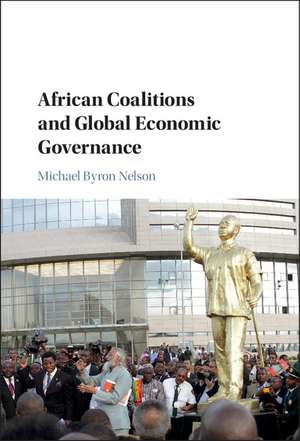African Coalitions and Global Economic Governance
Autor Michael Byron Nelsonen Limba Engleză Hardback – 31 aug 2016
Preț: 697.28 lei
Preț vechi: 783.47 lei
-11% Nou
Puncte Express: 1046
Preț estimativ în valută:
133.44€ • 139.14$ • 110.90£
133.44€ • 139.14$ • 110.90£
Carte tipărită la comandă
Livrare economică 20 martie-03 aprilie
Preluare comenzi: 021 569.72.76
Specificații
ISBN-13: 9781107140196
ISBN-10: 1107140196
Pagini: 294
Dimensiuni: 160 x 236 x 24 mm
Greutate: 0.6 kg
Editura: Cambridge University Press
Colecția Cambridge University Press
Locul publicării:New York, United States
ISBN-10: 1107140196
Pagini: 294
Dimensiuni: 160 x 236 x 24 mm
Greutate: 0.6 kg
Editura: Cambridge University Press
Colecția Cambridge University Press
Locul publicării:New York, United States
Cuprins
1. Introduction; Part I. Theory and Background: 2. Institutional systems; 3. Viewing governance from below; 4. Coalitions; Part II Cases: 5. Global food safety governance and Africa; 6. Global IP governance and African coalitions; 7. Africa and the governance of agricultural trade; 8. Conclusion.
Notă biografică
Descriere
This book examines the strategic implications of fragmented global governance by institutions for African states and their coalitions.
















